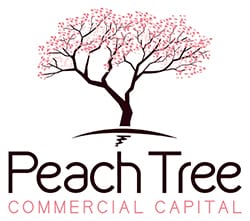For business owners unaccustomed to invoice factoring, selling accounts receivable can be confusing. It’s true that factors do offer companies fast access to cash, but they don’t provide typical loans. The cash that a company receives doesn’t need to be repaid over time with interest. In fact, in most cases, it never needs to be repaid!
Instead, factors pay businesses (such as distribution or manufacturing companies, design firms and law firms) the money that they already have coming to them, only faster. Once an invoice is sent, your clients then pay the factor directly. In exchange, the factoring firm keeps a small fee, often around 3%. It’s not a bad deal when you realize the factor almost becomes your outsourced billing department, and as a perk accelerates the speed at which cash comes into your business.
A lot of companies, especially business-to-business (B2B) companies and business-to-government (B2G) companies, write a lot of medium to large dollar invoices (say $25,000 and up). When those companies need the money faster than their clients can get it to them, invoice factoring is an excellent way to manage cash flow, meet expenses, and pay employees on schedule.
Business who want to try invoice factoring need to be prepared to allow third parties to deal directly with their clients, something not everybody comfortable with. They also need to have been in business for at least two years, have a business model that generates accounts receivables, and have no major legal or tax problems in order to qualify.
If you meet these requirements, then keep reading because invoice factoring may be just what you need to free up some cash.
How Does Invoice Factoring Work?
Factoring can be broken down into a few simple steps. First, after you provide a good or service for a client, you invoice them, creating a written record that they owe you money. You send your client the invoice, Then, you sell that invoice to a factoring company.
Unless you already have a relationship with that factor, they’re going to need some paperwork from you before you get started, including an application with standard personal & business information, accounts receivable and accounts payable aging reports, and tax returns. Once everything is set up, however, the factoring process will be much more streamlined.
After you sell an invoice to a factor, they will typically give you 80 percent or more of the money pending right off the bat, money that you’re free to use for anything your business needs. Then, after your client pays the invoice to the factoring company directly, the factor will return the rest of the money to you, minus a fee that averages at about three percent.
There are a number of variables which may increase your factoring cost. First of all, there may be an origination fee. The origination fee would be the upfront cost of beginning a relationship with a factoring company. There might also be a monthly minimum volume fee, which would be a fee for those months where you don’t send a minimum amount of accounts receivable to the factor. Another fee is a wire fee, where you’ll be charged $20 or so if you request your payment through wire rather than an ACH. Make sure to read your factoring company’s policies very closely so you know what fees you may be subject to.
Finding the Right People to Work With
Now that we’ve gone over what invoice factoring is and why many companies utilize it, let’s explore how to find the right factoring company for you and your business. Much of our time working with clients is spent helping them to analyze details like the following to select the perfect financing solution for their company’s unique needs.
First, how much contact do you want factors to have with your clients? Many business owners worry that their customers may end up being constantly pestered for money from some company they’ve never heard of. This fear is slightly unfounded, but if it’s something you’re worried about then try to find a factoring company with a minimum contact policy. Some factors even allow you to set up a bank account in your name which the factoring company has control over, so your clients will never even have to do business with anybody but you.
Also, it’s a good idea to find a factor which works specifically with companies in your industry. If you work with a factor who is familiar with the type of business you conduct, then your application is likely to proceed more quickly and smoothly.
Another thing to keep in mind is whether you want to do spot factoring or contract factoring, and if you choose contract factoring, how much flexibility do you want in the relationship. Spot factoring is when companies sell individual invoices, while contract factoring usually involves companies needing to meet a monthly quota in invoices, and sometimes requires companies to sell all of their invoices for certain clients.
For many, invoice factoring is a tool they regularly use for growing their companies. Even without good credit, invoice factoring is able to give your company an enormous amount of economic freedom. For some businesses, factoring means the difference between drowning under unpaid, accruing expenses and keeping your company profitable with healthy cash flow.
Contact our team to discuss your cash flow needs and to see if factoring can serve your business.

